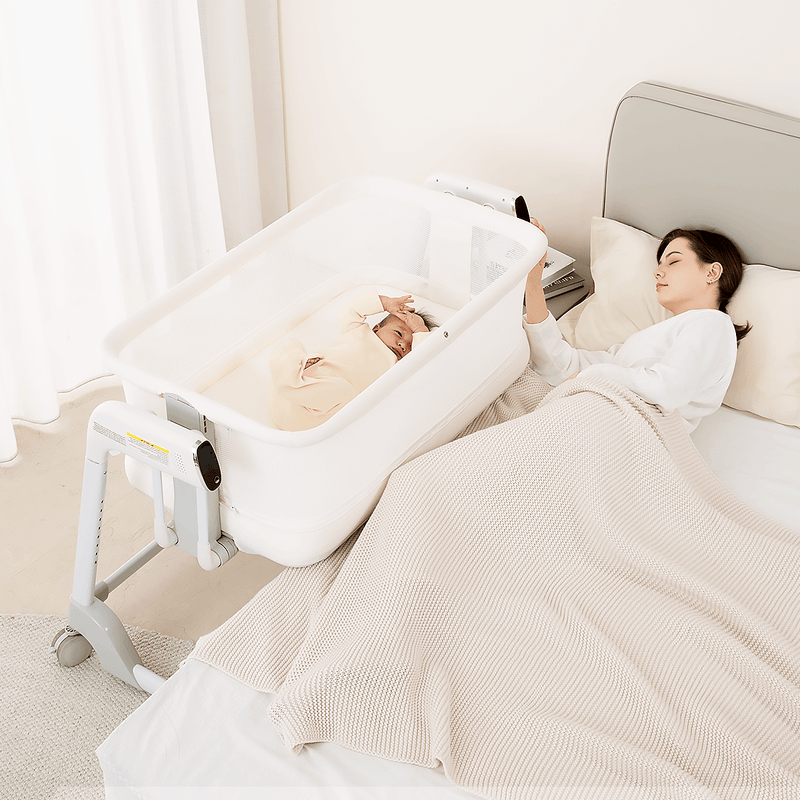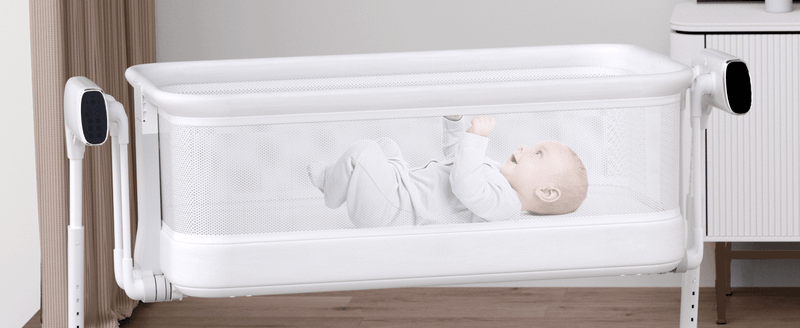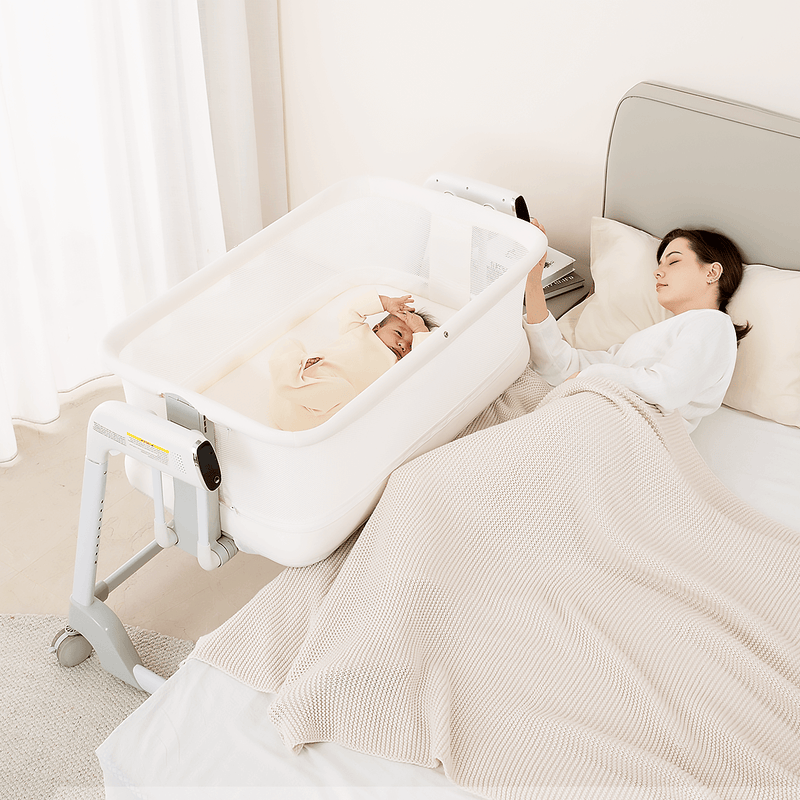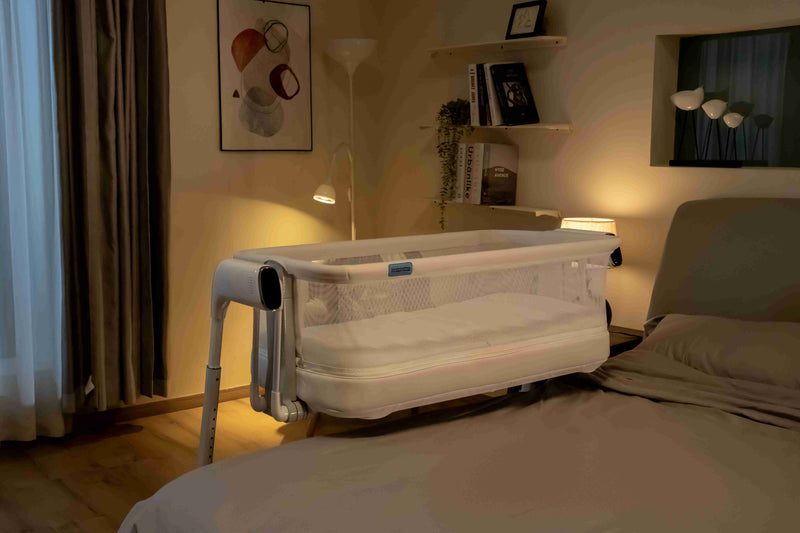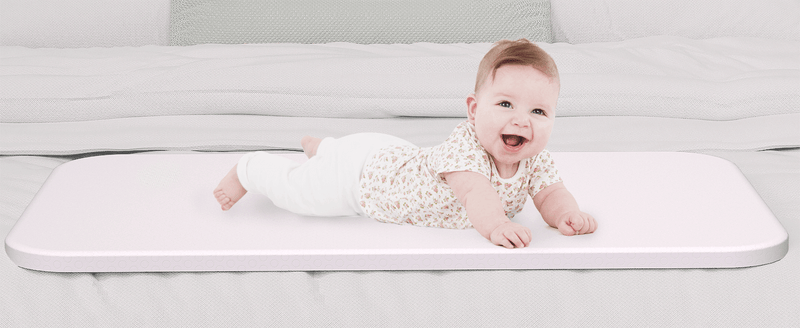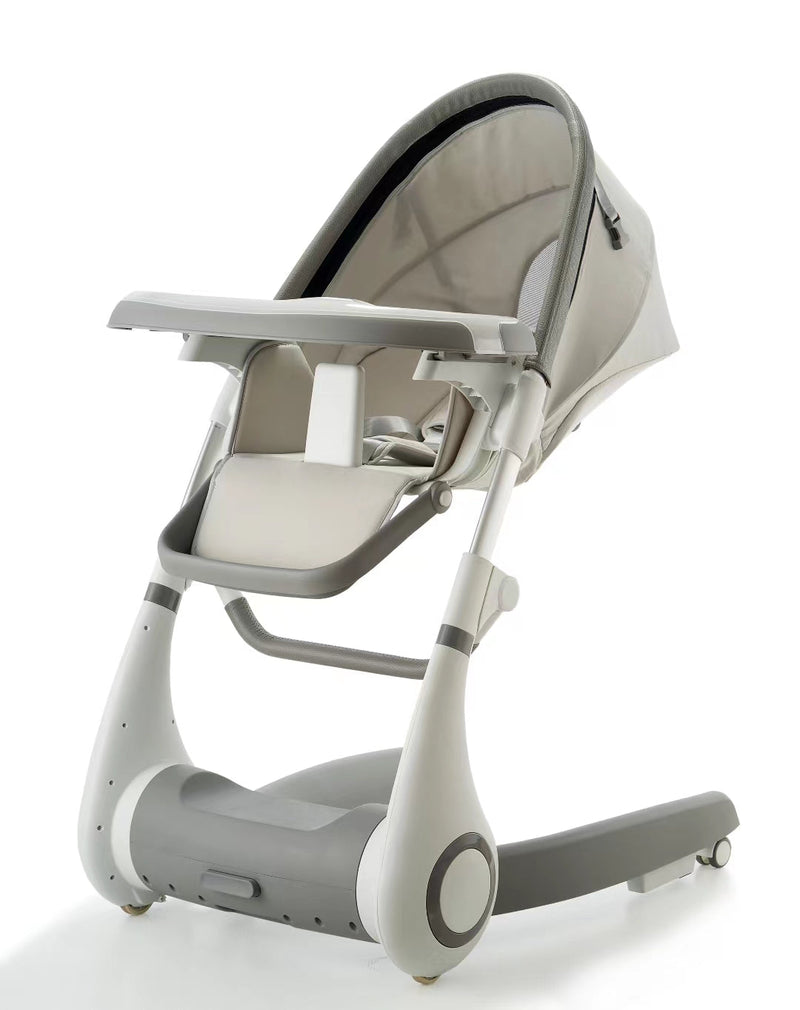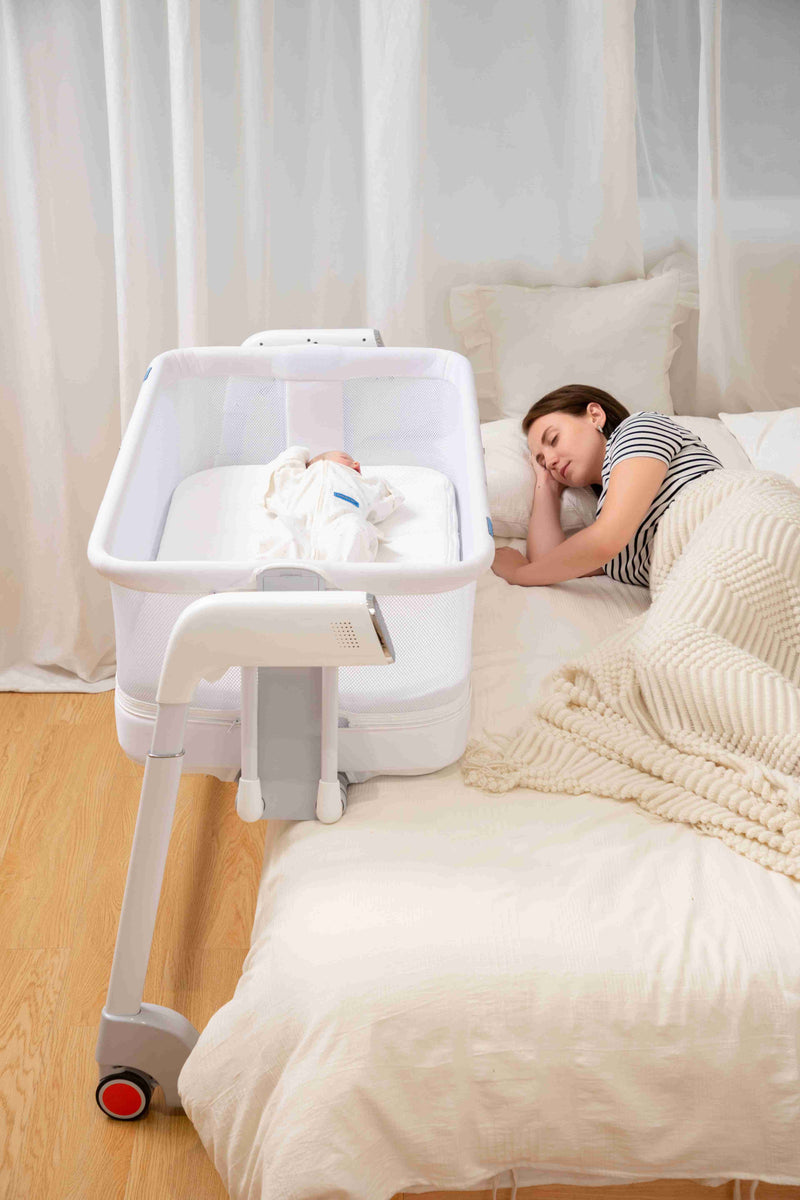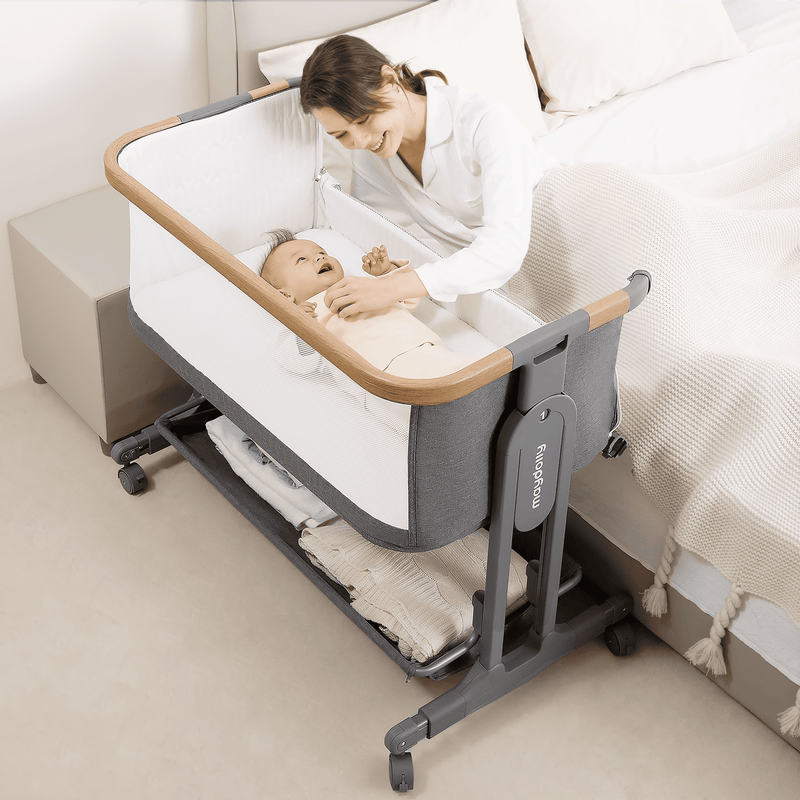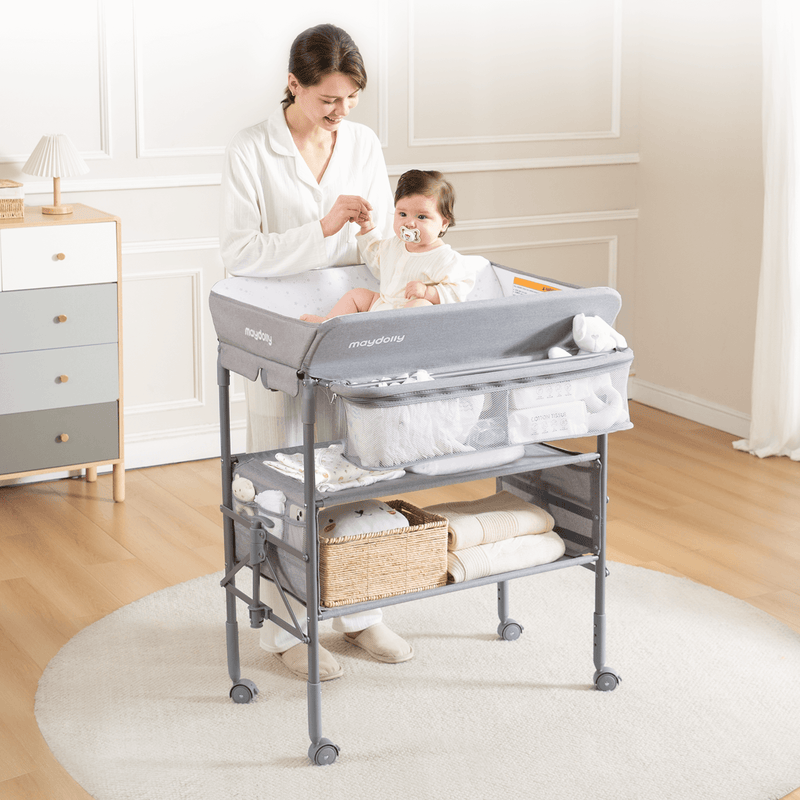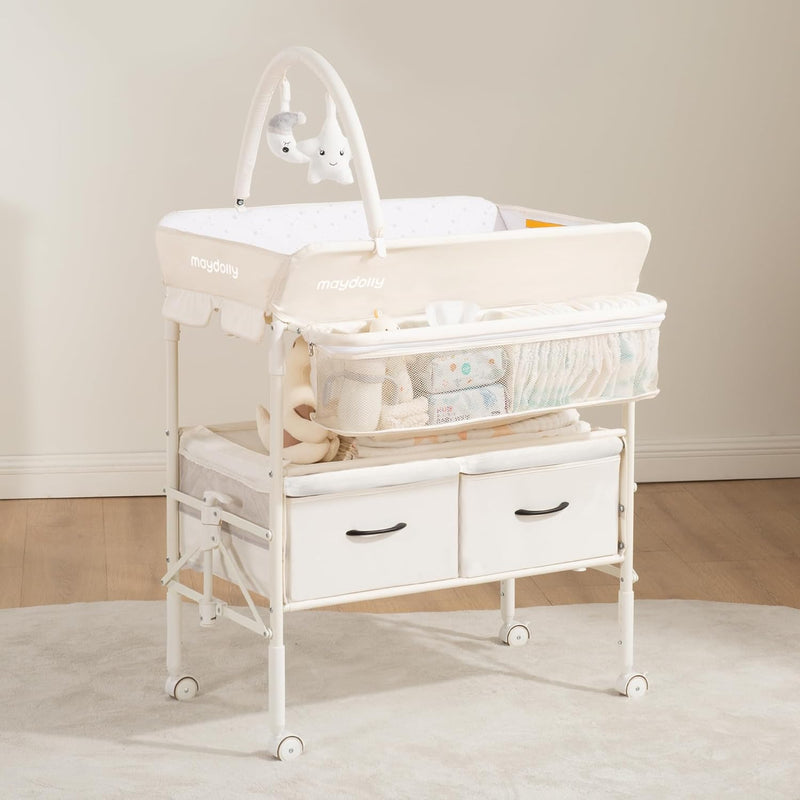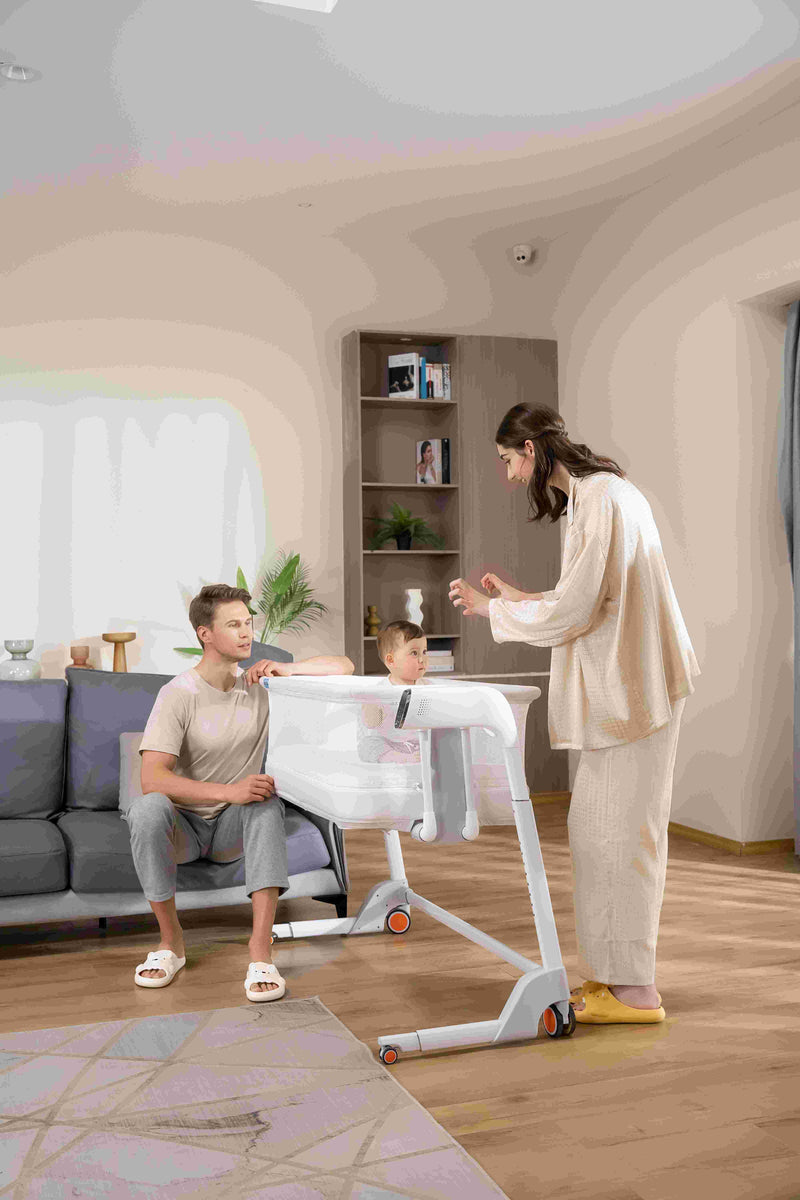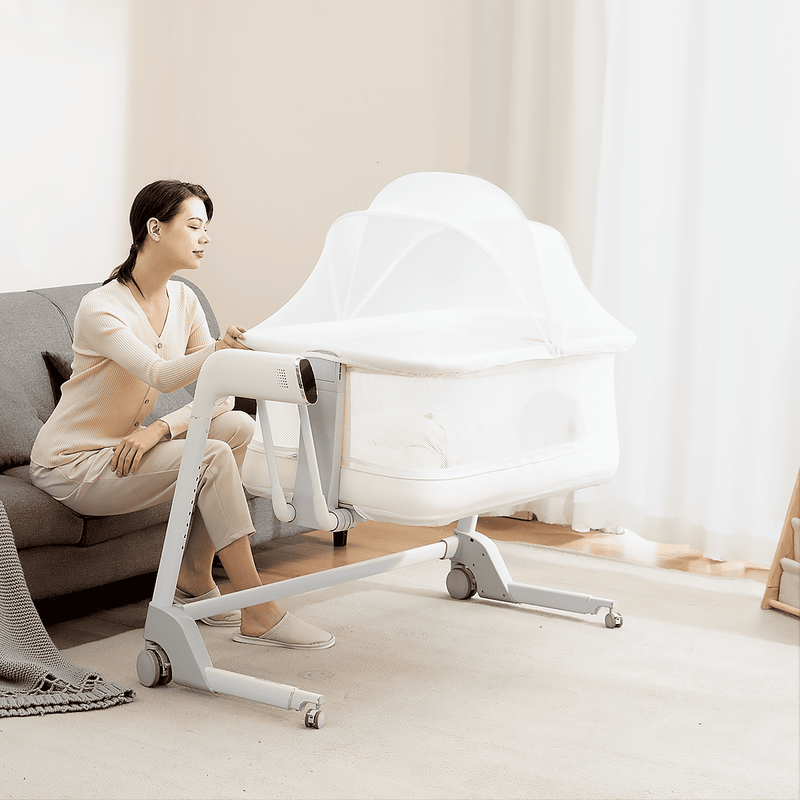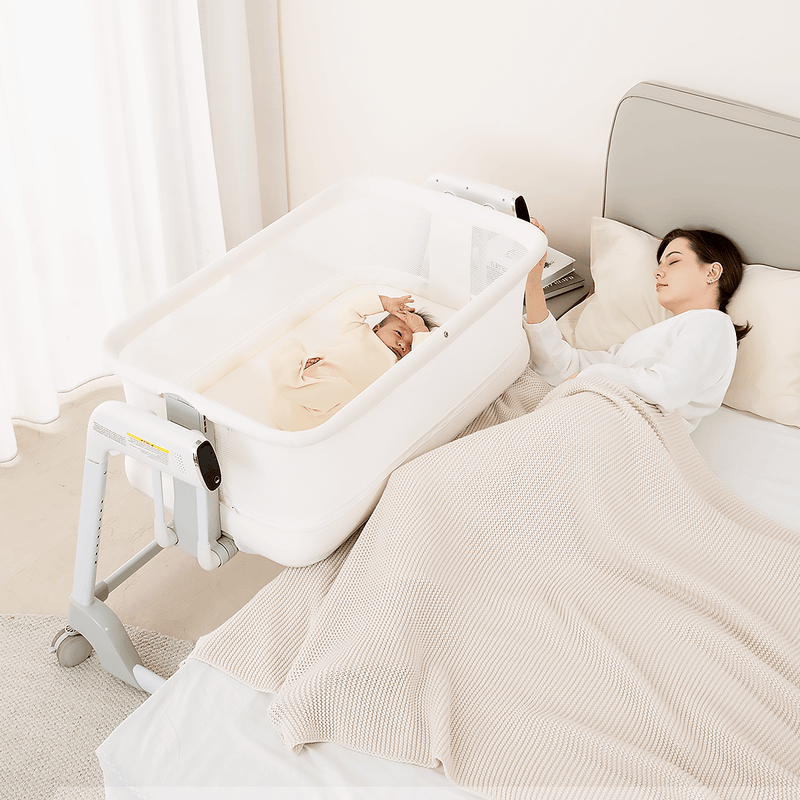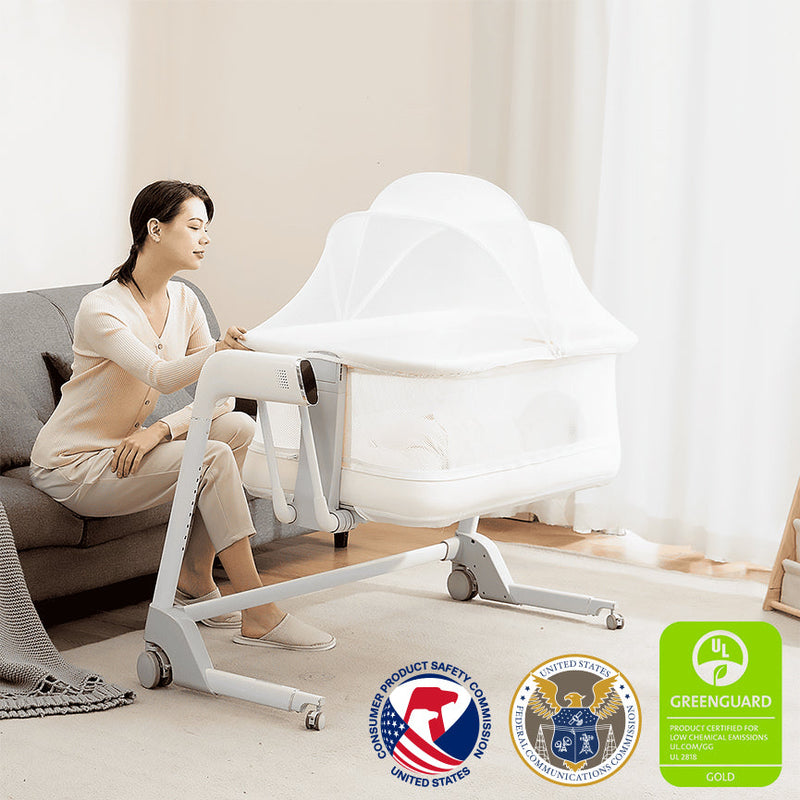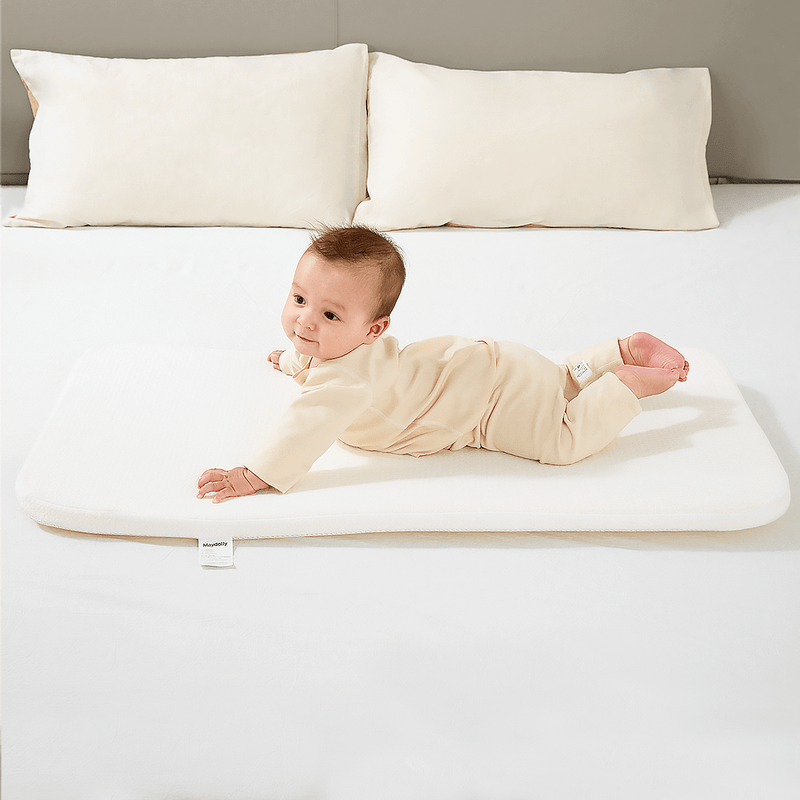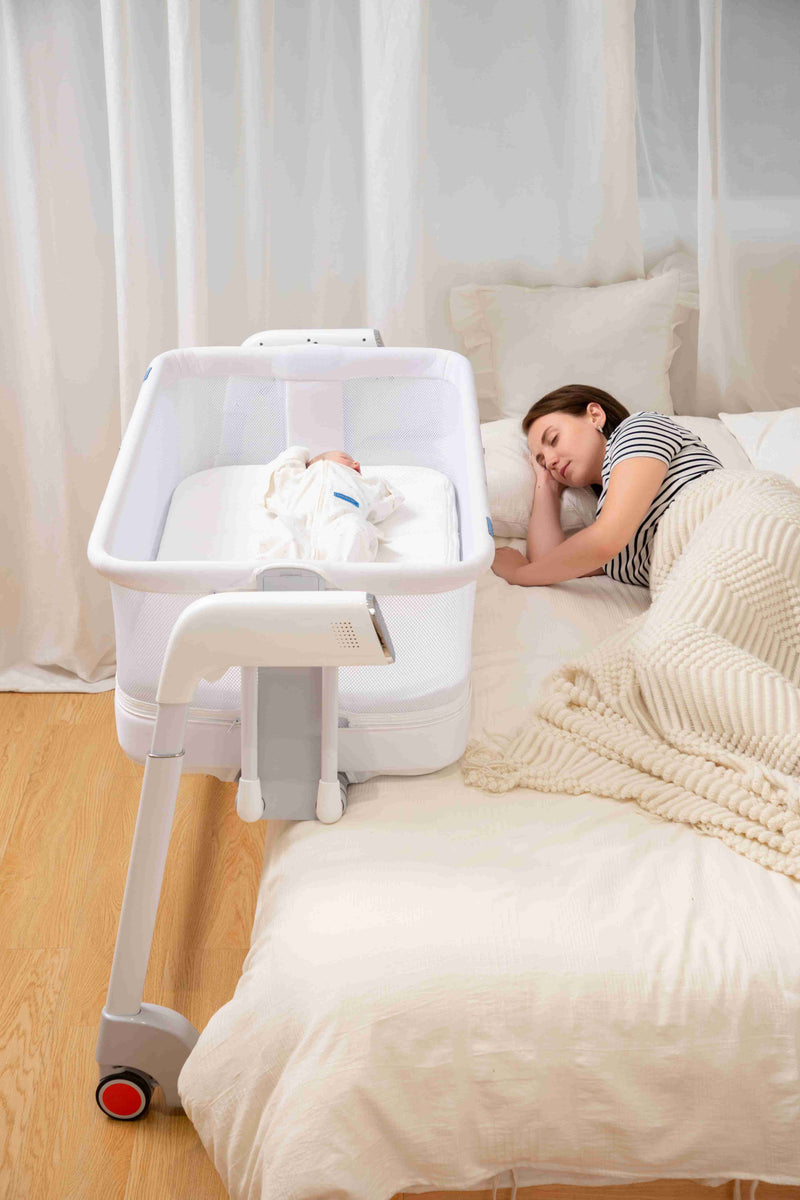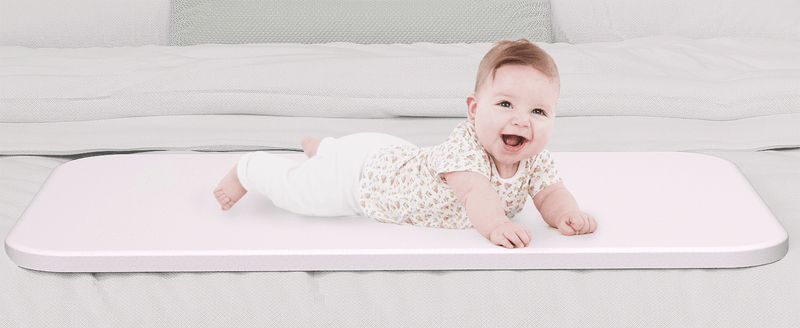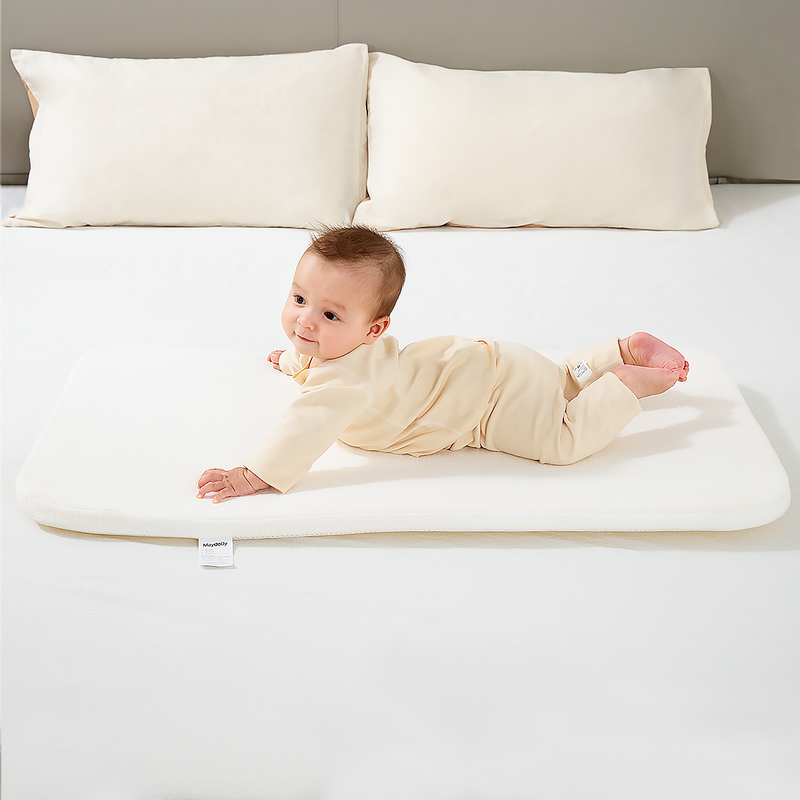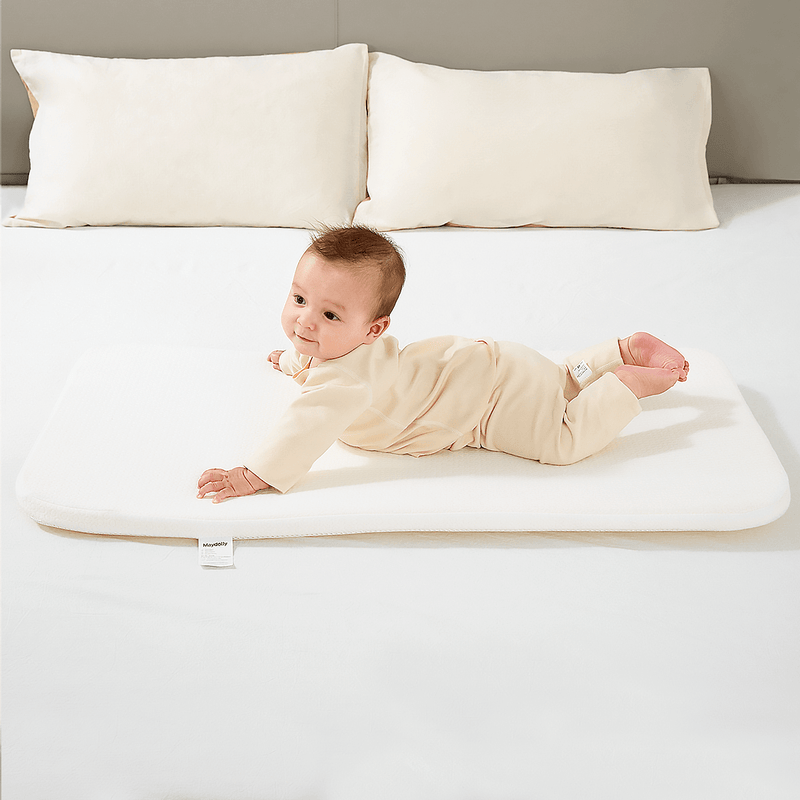Baby – by AaliyahGloria – April 14, 2025
How to Get Your Newborn to Sleep in a Bassinet: Expert Tips & Solutions
As a new parent, few challenges are as frustrating and exhausting as trying to get your newborn to sleep in a bassinet. You've spent hours rocking and soothing your baby to sleep, only to have them wake up the moment you place them in their baby bassinet. If this sounds familiar, you're not alone.
Many parents struggle with this common issue, but there are effective strategies that can help your baby feel secure and comfortable in their bassinet. In this comprehensive guide, we'll explore why babies resist sleeping in bassinets and provide practical, evidence-based solutions to help both you and your baby get the rest you need.
Why Won't My Newborn Sleep in Their Bassinet?
Understanding why your baby refuses to sleep in their bassinet is the first step toward solving the problem. Here are the most common reasons:
1. The Comfort Factor
Newborns spent nine months in the warm, snug environment of the womb, where they were constantly surrounded by your heartbeat, movement, and comforting sounds. Compared to this, a bassinet can feel vast, still, and cold. Babies often prefer the warmth and security of being held close to your body.
2. Startle Reflex Disrupts Sleep
The Moro reflex, or startle reflex, is a primitive response that causes babies to suddenly throw out their arms and legs when they feel like they're falling. This reflex is particularly active during the first few months of life and can easily wake a baby who's just been placed in a bassinet.
3. Gas, Reflux, or Physical Discomfort
Physical discomfort is another common reason babies resist the bassinet. Conditions like gas or acid reflux can make lying flat uncomfortable or even painful for your little one.
4. Overtiredness Makes Sleep Harder
Contrary to what you might expect, an exhausted baby often has more trouble falling and staying asleep. When babies become overtired, their bodies produce stress hormones like cortisol, which can make it difficult for them to settle down.
5. They Simply Want to Be Held
Human touch is a powerful need for newborns. Many babies simply prefer to sleep while being held, as it provides the security, warmth, and comfort they crave.
6. Environmental Factors
Babies are sensitive to their surroundings. A room that's too hot, too cold, too bright, or too noisy can prevent your baby from settling comfortably in their bassinet.
How to Help Your Newborn Sleep in a Bassinet: Practical Tips
Now that we understand why babies might resist sleeping in a bassinet, let's explore effective strategies to overcome these challenges:
Create a Sleep-Conducive Environment
Optimal Temperature: Maintain a room temperature between 68-72°F (20-22°C). Babies can't regulate their body temperature as well as adults, so keeping the room at a comfortable temperature is crucial.
Appropriate Lighting: Keep the room dark during sleep times. Consider using blackout curtains during daytime naps and a dim nightlight for nighttime feedings and diaper changes.
White Noise: A white noise machine can help mask household sounds and mimic the constant whooshing sounds your baby heard in the womb. This consistent background noise can be particularly soothing for newborns.
Establish a Consistent Sleep Routine
Babies thrive on predictability, and a consistent bedtime routine can signal to your baby that it's time to sleep. Your routine might include:
A warm bath
Gentle infant massage
Changing into clean clothes or pajamas
Feeding in a calm, quiet environment
Reading a short book or singing a lullaby
Swaddling (if your baby enjoys it)
Consistency is key—try to follow the same sequence of activities each night, even if you need to adapt the timing slightly based on your baby's cues.
Master the Swaddle Technique
Swaddling can work wonders for many babies by:
Mimicking the snug feeling of the womb
Preventing the startle reflex from waking them
Providing a sense of security
When swaddling, ensure that:
The wrap is snug but not too tight, especially around the hips
The baby's face is completely uncovered
The swaddle doesn't come loose during sleep
Not all babies enjoy being swaddled, so observe your baby's response. Some babies prefer having their arms free or being swaddled with just their lower body.
Perfect Your Transfer Technique
How you transfer your baby from your arms to the bassinet can make a significant difference:
Wait until your baby is in deep sleep (usually 15-20 minutes after falling asleep)
Move slowly and deliberately
Keep your baby close to your body as you lower them down
Place their back down first, then slowly remove your hands from under their head and bottom
Keep one hand on their chest for a moment to reassure them before fully removing contact
Address Physical Discomfort
If your baby seems physically uncomfortable:
For Gas: Try bicycle leg exercises, gentle tummy massage, or burping your baby thoroughly after feeds.
For Reflux: Feed your baby in an upright position and keep them upright for 20-30 minutes after feeding. For severe cases, consult your pediatrician about potential treatments.
Gradual Transition Techniques
If your baby is particularly resistant to the bassinet, try these gradual approaches:
Start with Daytime Naps: Babies are often more willing to try new sleep environments during the day when they're naturally less fussy.
Warm the Bassinet: Place a heating pad or warm water bottle on the bassinet mattress before (not during) sleep time, then remove it before placing your baby down. Always check that the surface isn't too warm.
The Chair Method: If your baby only sleeps when held, try sitting in a chair next to the bassinet with your hand on your baby. Gradually reduce contact over several nights.
Use Appropriate Sleep Aids
Pacifiers: Offer a pacifier once breastfeeding is established. Research shows pacifiers can reduce the risk of SIDS and provide comfort.
Sleep Sacks: These wearable blankets provide warmth without the risks associated with loose bedding.
Your Scent: Place a t-shirt you've worn (without any loose fabric hazards) near your baby in the bassinet so they can smell your comforting scent.
How to Train Your Baby to Sleep in a Bassinet
Training your baby to sleep in a bassinet requires patience, consistency, and a gradual approach:
The "Drowsy But Awake" Technique
One of the most effective long-term strategies is to place your baby in the bassinet when they're drowsy but still awake:
Follow your soothing bedtime routine
Feed your baby until they're calm and drowsy, but not fully asleep
Place them in the bassinet before they fall completely asleep
If they fuss, place a gentle hand on their chest or pat them rhythmically to reassure them
If crying escalates, pick them up, soothe them, and try again when they're calm
This technique helps babies learn to fall asleep in their bassinet rather than in your arms, developing crucial self-soothing skills.
Be Consistent and Patient
Remember that consistency is crucial. It may take several days or even weeks for your baby to adjust to sleeping in their bassinet. Be patient and persistent—each baby adapts at their own pace.
Understand Wake Windows
Being aware of your baby's optimal wake windows can prevent overtiredness and make bassinet transitions smoother:
Newborns (0-2 months): 45-60 minutes of awake time
2-3 months: 60-90 minutes of awake time
4-5 months: 90-120 minutes of awake time
Watch for sleepy cues like yawning, eye rubbing, or becoming less active, and start your sleep routine before your baby becomes overtired.
Common Mistakes to Avoid
When trying to get your infant to sleep in a bassinet, be careful to avoid these common pitfalls:
Rushing the Transfer
Transferring your baby to the bassinet too soon, before they're in deep sleep, often results in immediate waking. Be patient and wait for signs of deep sleep, such as relaxed limbs and regular breathing.
Inconsistent Approach
Alternating between letting your baby sleep in the bassinet and co-sleeping (or other sleep locations) can confuse your baby and make it harder for them to adapt to the bassinet.
Ignoring Safety Guidelines
Always follow safe sleep guidelines recommended by the American Academy of Pediatrics:
Place baby on their back to sleep
Use a firm, flat sleep surface with a fitted sheet
Keep the sleep area free of pillows, blankets, toys, and other soft items
Share your room (but not your bed) with your baby for at least the first six months
Forgetting Self-Care
Sleep deprivation can make everything more challenging. Don't forget to care for yourself by:
Sleeping when your baby sleeps when possible
Asking for help from partners, family, or friends
Taking short breaks when you feel overwhelmed
Special Considerations for Different Situations
Helping Premature Babies Sleep in Bassinets
Premature babies may have additional challenges with bassinet sleep. They might:
Have more pronounced startle reflexes
Be more sensitive to temperature changes
Have increased risk of reflux
Work closely with your healthcare provider for personalized guidance and consider using specialized swaddles designed for preemies.
Transitioning from Co-Sleeping to Bassinet
If you've been co-sleeping and want to transition to a bassinet:
Start by placing the bassinet right next to your bed at the same height
Consider a baby bassinet with a dropside that allows you to keep your baby close while still having them in their own sleep space
Gradually move the bassinet further from your bed over time
Managing Nighttime Feedings
For breastfeeding mothers, having your baby sleep in a bassinet next to your bed can make nighttime feedings more manageable:
Keep the room dimly lit during feeds
Minimize interaction and stimulation during nighttime awakenings
Consider a bassinet with easy access to facilitate transfers
When to Seek Help
While it's normal for babies to resist the bassinet initially, persistent difficulties might warrant professional support. Consider consulting a pediatrician or sleep specialist if:
Your baby seems to be in pain during sleep attempts
They consistently wake more than hourly throughout the night
You notice unusual breathing patterns, excessive sweating, or other concerning symptoms
You're feeling overwhelmed, anxious, or depressed due to sleep deprivation
Technology That Can Help: Smart Bassinets for Better Sleep
For parents looking for additional support, modern technology offers solutions that can dramatically improve your baby's sleep experience. Smart bassinets combine traditional bassinet design with technology specifically designed to help babies (and parents) get more rest.
The Maydolly 506 Smart Bassinet is an excellent example of how technology can address many of the common challenges we've discussed. This ultra-intelligent, breathable, and washable electric cradle is specifically designed to provide the safest and most comfortable sleep for your newborn.
Key Features That Help Babies Sleep Better:
Automatic Cry Detection Technology: The bassinet's advanced technology detects your baby's cries instantly and responds with soothing motions or sounds, helping to calm them quickly without requiring you to intervene for every small disturbance.
5-Speed Electric Adjustment: You can easily switch between five gentle rocking speeds to match your baby's specific needs, providing the exact level of motion that helps them drift off peacefully.
Ultra-Breathable Design: The innovative technology allows your baby to breathe easily through the mattress material, reducing suffocation risks and ensuring proper air circulation for comfortable sleep.
Adjustable Height Levels: With eight different height positions, you can perfectly position the bassinet next to your bed for easy nighttime access.
Multiple Soothing Options: Featuring 12 melodies and white noise options, the bassinet provides various soothing sounds that help recreate the comforting environment of the womb.
Spacious Design for Extended Use: With dimensions of 40.2" x 24", this electric bassinet offers one of the largest sleep surfaces among similar products, allowing it to accommodate your growing baby for longer (up to 24 months or 20 pounds).
How Smart Bassinets Support Better Sleep Habits
Smart bassinets don't just provide temporary relief—they can help establish healthy sleep patterns for your baby:
The consistent, gentle motion helps babies learn to associate the bassinet with comfort and sleep
Automated responses to crying teach babies that they can be soothed without always being picked up
The combination of motion, sound, and comfort creates an optimal sleep environment
For parents struggling with getting their babies to sleep in a bassinet, a smart bassinet like the Maydolly 506 can be a game-changer, providing much-needed rest for the entire family.
Final Thoughts: Consistency and Patience Are Key
Remember that learning to sleep in a bassinet is a significant adjustment for your newborn. Be patient with your baby and with yourself as you work through this challenging transition. What works for one baby may not work for another, so be prepared to try different approaches.
With consistency, patience, and the right strategies, most babies can learn to sleep comfortably in a bassinet. And while you're helping your baby master this important skill, don't forget to take care of yourself too. Parenting a newborn is demanding, and proper rest is essential for both you and your baby.
Creating a comfortable, safe sleep space extends beyond the bassinet itself. Consider other aspects of your nursery setup, like having a convenient baby changing table nearby for quick nighttime diaper changes that won't fully wake your baby.
By understanding your baby's needs and implementing the strategies outlined in this guide, you can help your newborn transition to peaceful, safe sleep in their bassinet—giving both of you the restorative rest you need during this precious time.
FAQs About Getting Babies to Sleep in Bassinets
Q: How long should I expect it to take before my baby sleeps well in the bassinet?
A: Every baby is different, but most will begin to adjust within 1-2 weeks of consistent practice. Some babies may adapt more quickly, while others might take 3-4 weeks to become comfortable.
Q: Can I use a bassinet if my baby has reflux?
A: Yes, but you may need to make adjustments. Consider a bassinet that allows for a slight incline (always consult your pediatrician first), ensure you keep your baby upright for 20-30 minutes after feeding, and consider smaller, more frequent feedings.
Q: Is it normal for my baby to only sleep for short periods in the bassinet?
A: Yes, newborns typically have short sleep cycles of about 40-50 minutes. As they mature, these cycles will gradually lengthen. Focus on creating positive associations with the bassinet rather than expecting long stretches of sleep initially.
Q: Should I wake my baby if they fall asleep while nursing before putting them in the bassinet?
A: Ideally, try to keep your baby awake during feeding, then place them in the bassinet drowsy but awake. If they do fall asleep, you can try gently rousing them slightly before the transfer.
Q: How do I know if my bassinet is safe for my baby?
A: A safe bassinet should have a firm, flat mattress that fits snugly with no gaps, breathable sides, a sturdy base, and meet current safety standards. It should also be free of any pillows, blankets, or toys during sleep.
Remember that with patience, consistency, and the right approach, you can help your baby learn to sleep comfortably and safely in their bassinet, establishing healthy sleep habits that will benefit your entire family.







